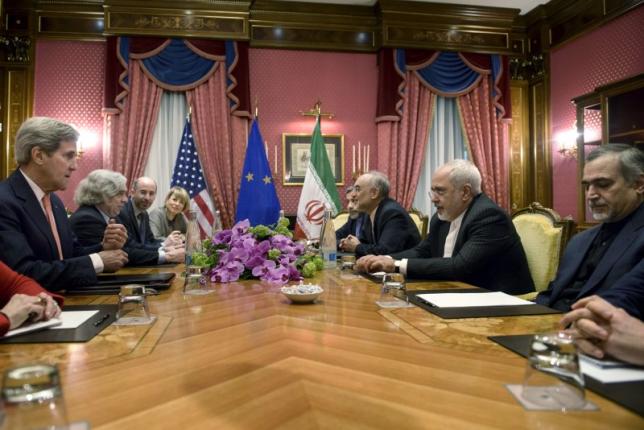
A historic nuclear deal between Iran and six major nations was reached on Tuesday after relentless negotiations that saw some crucial give-and-take in order to reach the landmark agreement.
The deal will result in the lifting of decades of harsh economic sanctions on Iran in return to the assurance from Tehran of putting a cap on its nuclear programme for at least 10 years.
"All the hard work has paid off and we sealed a deal. God bless our people," an Iranian diplomat told Reuters on Tuesday.
Here are some of the important features of the Iran nuclear deal, as per information available so far-
- Removal of economic sanctions on Iran - This is one of the most important outcomes of the deal for Iran, which has been isolated for decades.
Iranian state news agency IRNA describes how the nuclear deal will lift sanctions across all sectors in the country."Economic and financial sanctions imposed by the EU, U.S. will be lifted when implementation of the deal begins ... Bans or restrictions on economic cooperations with Iran will be lifted in all the fields including investment on oil and gas. Billions of dollars of Iran's frozen assets will be released ... bans on Iran's aviation will be lifted after three decades, bans on Iran's central bank, the National Iranian Oil Company (NIOC), Iran Shipping Lines (IRISL), Iran Air and many other institutions and people will be lifted," IRNA said, citing the deal, Reuters reported.
- Conditional access for UN inspectors to Iran sites -A western diplomat told The Associated Press that the final nuclear agreement will allow UN inspectors to push for visits to military sites in Iran. The requests could, however, be challenged by Tehran. An arbitration board comprising members of the seven negotiation nations will then make the final decision if such a situation arises, the diplomat said on Tuesday.
- Iran agrees to 'Snapback' of sanctions- According to Reuters, if Iran is found violating any of the terms of the nuclear agreement, it would result in an 'snapback' of sanctions on Tehran within 65 days.
- UN arms and missiles embargo to remain for a few years -This was one of the stickiest points on the agenda that divided the negotiators, with China and Russia backing Iran's call for complete lifting of the embargo, while the United States, Britain, Germany and France were skeptical. According to Reuters, the final Iran nuclear deal will ensure that the UN weapons embargo will remain in place for another five years, while the missile embargo will hold for eight more years.
- UN Nuclear Watchdog, Tehran sign 'Roadmap' - The International Atomic Energy Agency and Iran have signed a 'roadmap', which will allow the former to assess the 'issues relating to possible military dimensions' of Tehran's nuclear programme by the end of 2015, according to The Associated Press.
"The aim is to resolve all outstanding issues with Iran by end of 2015," IAEA chief Yukiya Amano said on Tuesday, according to Reuters.

















